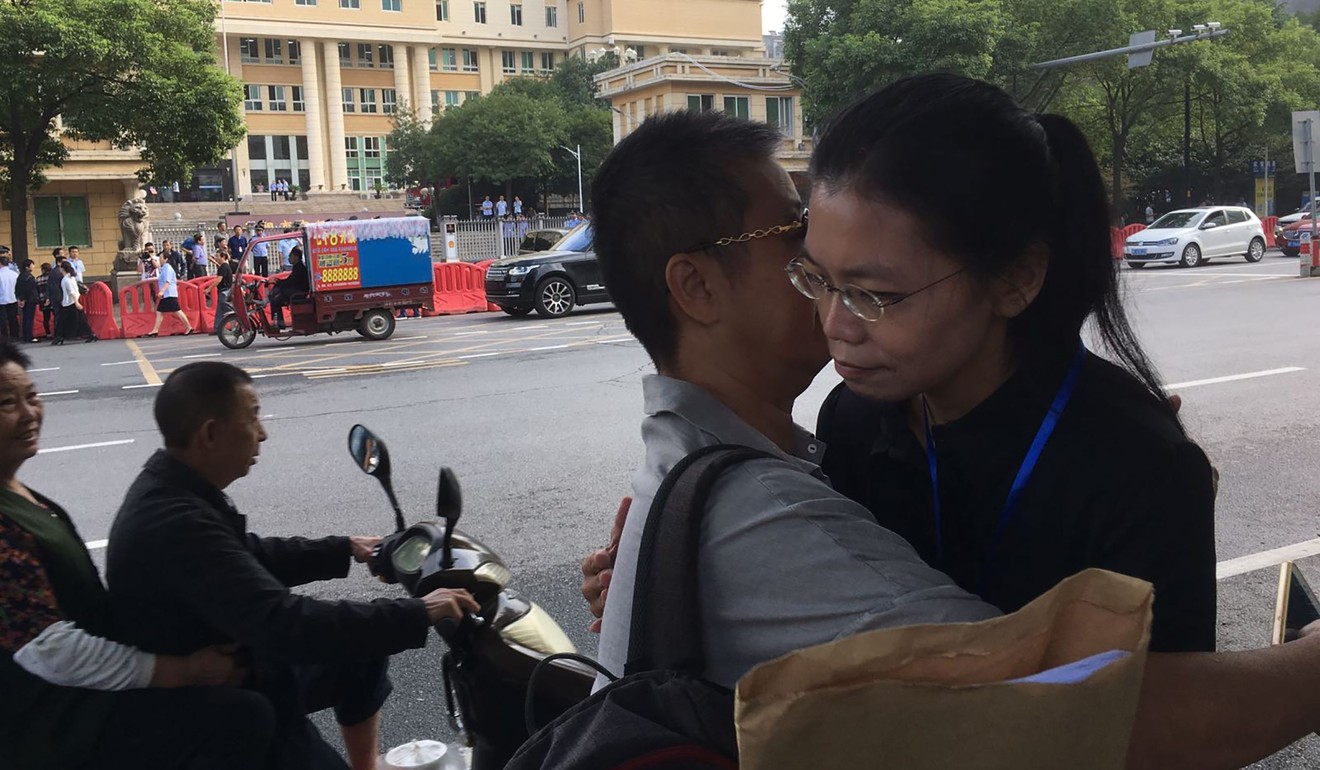
Update | Taiwanese rights activist pleads guilty to subversion in China’s mainland
Lee Ming-che’s wife warned before the hearing in Hunan province he may be pressured into admitting the charges
A Taiwanese pro-democracy activist pleaded guilty on Monday to subverting state power in mainland China’s first criminal prosecution of a non-profit worker since Beijing passed a law tightening controls over foreign non-governmental organisations.
Lee Ming-che’s supporters, though, quickly said he had been forced to confess to crimes he had not committed.
Lee told the court in Yueyang, a city in central China’s Hunan province, that he had “spread articles that maliciously attacked the Communist Party of China, mainland’s existing system and mainland’s government.” He said also he had organised people and written articles “intended to subvert the state’s power”.

Subversion of state power is a vaguely defined charge often used by authorities to muzzle dissent and imprison critics.
Lee’s wife, Lee Ching-yu, who was in Yueyang for the trial, had warned that he might be pressured into pleading guilty. China’s wide-ranging crackdown on civil society has featured a string of televised “confessions” – believed to have been coerced – from human rights activists accused of plots to overthrow the political system.
On Monday, Lee’s supporters blasted the legal process.
“This trial is illegal,” said Hsiao I-Min, who travelled to Yueyang with Lee Ching-yu, and is with the Taiwanese non-governmental organisation Judicial Reform Foundation. Lee “was forced to confess a false truth”, he said.
“Pursuing democracy and freedom is not a crime,” Hsiao said. “Mr Lee was accused by the Chinese government of discussing and spreading ideas about democracy from the West. We think this is a basic human right.”
Security was tight at the Yueyang City Intermediate People’s Court, with barricades on the streets, dozens of security personnel patrolling the perimeter and reporters ordered to leave the area.
Lee Ming-che, 42, has conducted online lectures on Taiwan’s democratisation and managed a fund for families of political prisoners on the mainland. He cleared immigration in Macau on March 19 but did not show up for a planned meeting with a friend later that day.
Amnesty International and other rights organisations have called for his immediate release.
The new law says foreign NGOs must not endanger China’s national security and ethnic unity, and subjects non-profit groups to close police supervision. It is seen as an attempt to clamp down on perceived threats to the ruling Communist Party’s control.
Relations between Taiwan and the mainland have been near an all-time low since the election of Taiwanese President Tsai Ing-wen, whose Democratic Progressive Party has advocated Taiwan’s formal independence. Beijing cut off official contacts with Taipei soon after Tsai was inaugurated.
Taiwan’s presidential office said in a news briefing on Monday afternoon that the government was engaged in an “all-out effort to assist Mr Lee Ming-che’s family”.
“His relief is our top priority. The position of this government has been very clear. Mr Lee is one of our citizens,” an office spokesman said, adding: “We’ll do everything in our power to ensure his safe return.”
Lee’s co-defendant, Peng Yuhua, who is from the mainland, also pleaded guilty. Peng said he had founded an organisation called Palm Flower Company to pressure Beijing to accept a multi-party political system. Lee was his deputy in charge of education, Peng said.
Additional reporting by Reuters
